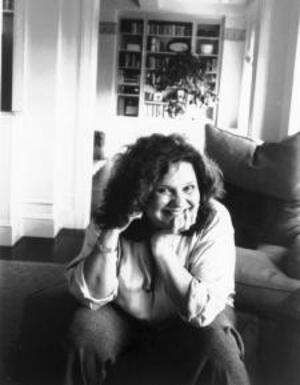Wendy Wasserstein first woman playwright to win Tony Award
Born and raised in New York City and educated at Mount Holyoke College and the Yale School of Drama, Wendy Wasserstein was already an established playwright when she won the Tony Award for Best Play for The Heidi Chronicles on June 4, 1989. She was the first woman ever to win the Tony for best play. The Heidi Chronicles, which explores art historian Heidi Holland's disillusionment with the idealism that characterized the 1960s, also earned Wasserstein a Pulitzer Prize for drama, the New York Drama Critics Circle Award, the Drama Desk Award, and the Susan Blackburn Prize. The play was later adapted for television.
Like The Heidi Chronicles, Wasserstein's earlier plays also centered on strong but conflicted modern women. Uncommon Women and Others, written as her Yale master's thesis and first produced in 1975, follows five Mount Holyoke graduates through their first five years after college, as they discuss men, sex, marriage, careers, and the patriarchal nature of society. It is considered the first serious dramatic treatment of contemporary women's issues. Later plays follow similar themes. The Sisters Rosensweig (1992), set in London in 1989, dramatizes the very different lives of three middle-aged sisters. An American Daughter (1997), the most overtly political of Wasserstein's plays, focuses on the sexism to which women are subjected in the public arena as it follows the travails of a nominee for the post of surgeon general. Although all the plays deal with serious topics, they are equally marked by a wry sense of humor.
Although Wasserstein's plays have met with both popular and critical success, some of them—especially Isn't It Romantic (1983) and The Sisters Rosensweig—have been criticized as "too Jewish." Wasserstein responded to this criticism by observing, "When your name is Wendy Wasserstein and you're from New York, you are the walking embodiment of 'too Jewish.'"
In addition to plays, Wasserstein wrote three musicals, several television plays, and numerous essays. Her essays appeared in the New Yorker, Harper's Bazaar, Esquire, New Woman magazine, and in the collection Bachelor Girls (1991).
Wasserstein's last play, Third, was produced at Lincoln Center in the Fall of 2005. Wasserstein died in New York City on January 30, 2006. Her first novel, Elements of Style, was published posthumously in April 2006.
Sources: Jewish Women in America: An Historical Encyclopedia, pp. 1456-1459; New York Times, March 31, 1989; June 5, 1989; July 19, 1989; Gail Ciociola, Wendy Wasserstein: Dramatizing Women, Their Choices, and Their Boundaries (Jefferson, NC, 1998).



